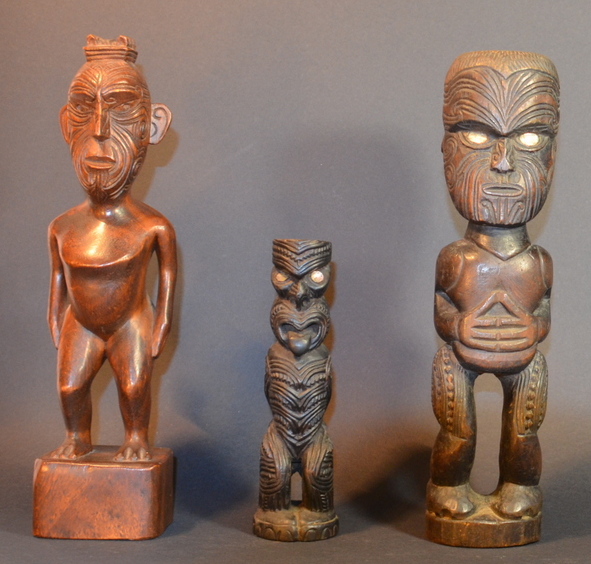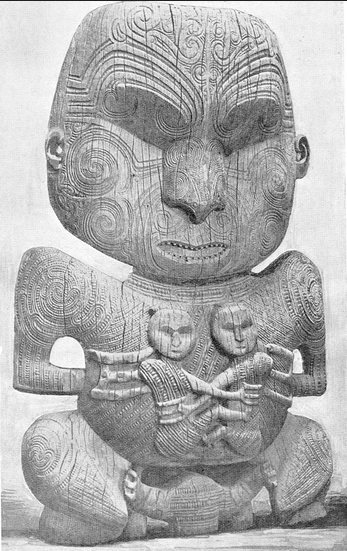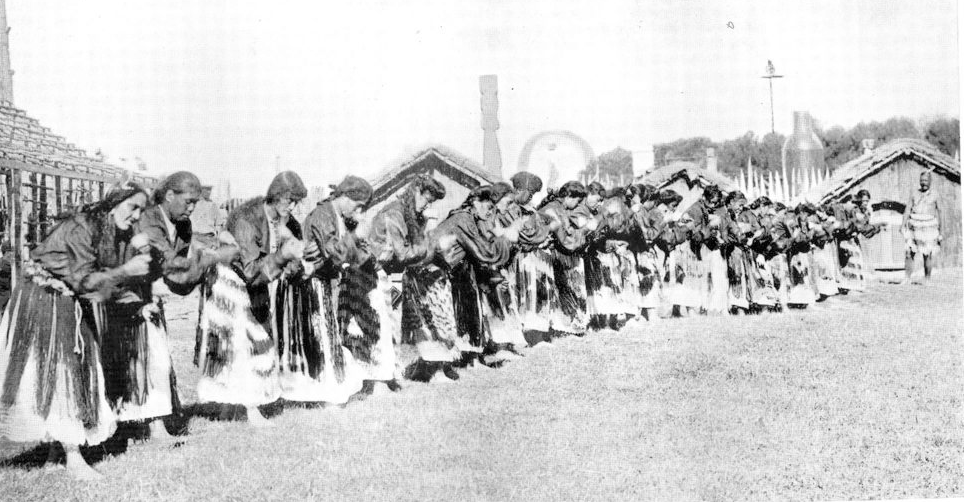by Paul Polkinghorne
 The Maori people are the indigenous people of Aotearoa (New Zealand) and first arrived here in waka hourua (voyaging canoes) from their ancestral homeland of Hawaiki over 1000 years ago.
The Maori people are the indigenous people of Aotearoa (New Zealand) and first arrived here in waka hourua (voyaging canoes) from their ancestral homeland of Hawaiki over 1000 years ago.
Today, Maori make up over 14 percent of the population. Their language and culture has a major impact on all facets of New Zealand life.
The Maori have a great respect for nature and have many legends about the creation of the earth and all its inhabitants. Many of these legends revolve around the spirits or gods who created or protect each part of their world such as the mountains, the forests, the lakes and the creatures of the sea.
The pre-European Maori had no written language so tribal history and the stories of the gods were kept using many forms of fine arts and crafts ranging from basket and cloth weaving to complex bone carvings, pearl shell jewelry and jade jewelry. These artifacts were then handed down through generations of tribal elders and became sacred objects or treasures “Taonga”, telling the history of a tribe and taking on the spirits of past great leaders and warriors who had worn them.
It is believed that a carving which is worn with respect or given and received with love, takes on part of the spirit of those who wear or handle it. In this way it becomes a spiritual link between people spanning time and distance. A carving that has been worn by family or tribal members over many generations contains the spirit of all of those people and is truly a great and powerful treasure.
 Maori culture is a rich and varied one, and includes traditional and contemporary arts. Traditional arts such as carving, weaving, kapa haka (group performance), whaikorero (oratory) and moko (tattoo) are practised throughout the country. Practitioners following in the footsteps of their tipuna (ancestors) replicate the techniques used hundreds of years ago, yet also develop exciting new techniques and forms. Traditional carvers keep Maori culture alive by creating intricate works that pay respect to the past and every piece carved tells a story. Most designs combine elements from several areas of mythology which interact with each other to tell a story. Each element has its own specific meaning and the way they are portrayed or combined is what gives a carving its own special character. The meanings of some elements vary from region to region but all share common roots.
Maori culture is a rich and varied one, and includes traditional and contemporary arts. Traditional arts such as carving, weaving, kapa haka (group performance), whaikorero (oratory) and moko (tattoo) are practised throughout the country. Practitioners following in the footsteps of their tipuna (ancestors) replicate the techniques used hundreds of years ago, yet also develop exciting new techniques and forms. Traditional carvers keep Maori culture alive by creating intricate works that pay respect to the past and every piece carved tells a story. Most designs combine elements from several areas of mythology which interact with each other to tell a story. Each element has its own specific meaning and the way they are portrayed or combined is what gives a carving its own special character. The meanings of some elements vary from region to region but all share common roots.
Maori designs in particular have special significance. The pre-European Maori had no written language so tribal history and the stories of the gods were kept using many forms of fine arts and crafts ranging from basket and cloth weaving to complex wood, bone, shell and jade carving. These artifacts were then handed down through generations of tribal elders and became sacred objects or treasures “Taonga”Science Articles, telling the history of a tribe and taking on the spirits of past great leaders and warriors who had worn them.
To describe in detail the beliefs and practices pertaining to the different phases or planes of Maori religion would be a lengthy task, and this paper is but a simply introduction. I invite you to explore more into this fascinating, complex culture.
POI Dance by Maori Women

